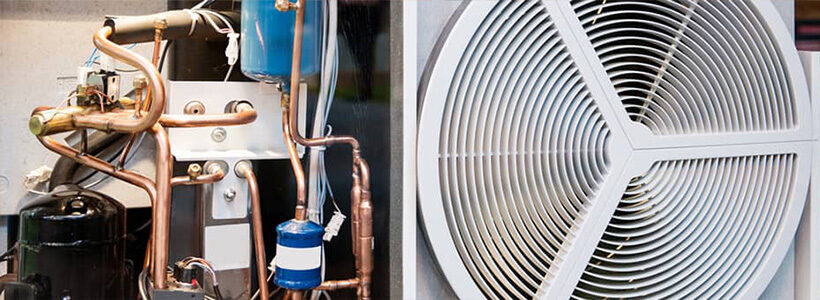Introduction
In today’s fast-paced world, where comfort is paramount, air conditioning systems have undergone a remarkable transformation. The integration of innovative technologies into modern air conditioning systems has not only enhanced their efficiency and performance but also significantly improved user experience. This article delves into various aspects of these advancements, exploring how they reshape our indoor environments while considering the implications of AC repair in San Diego.
Innovative Technologies in Modern Air Conditioning Systems
Air conditioning technology has evolved dramatically over the past few decades. From traditional units to smart climate control systems, innovation drives enhancements in energy efficiency, environmental responsibility, and user convenience. Let’s explore the groundbreaking technologies that are making waves in the air conditioning industry.
The Rise of Smart Thermostats
What Are Smart Thermostats?
Smart thermostats allow homeowners to control their HVAC systems remotely via smartphones or tablets. These devices learn user preferences and adjust temperatures accordingly.

Key Benefits:
- Energy Efficiency: Smart thermostats optimize energy usage by learning when to heat or cool spaces. Remote Access: Control your home environment from anywhere. Integration with Other Devices: They sync with smart home systems, enhancing overall functionality.
Variable Refrigerant Flow (VRF) Systems
Understanding VRF Technology
VRF systems utilize refrigerant as the cooling and heating medium, allowing for multiple indoor units connected to a single outdoor unit.
Advantages of VRF Systems:
- Individual Control: Each room can maintain its desired temperature independently. High Energy Efficiency: Reduced energy consumption compared to traditional systems. Flexibility: Ideal for both residential and commercial applications.
Geothermal Heating and Cooling
What is Geothermal Energy?
Geothermal systems harness the consistent temperature underground to heat and cool buildings efficiently.
Benefits of Geothermal Systems:
- Sustainability: Uses renewable energy sources. Long Lifespan: Less maintenance required due to fewer moving parts. Cost Savings: Although initial installation costs are high, long-term savings on utility bills are significant.
Inverter Technology
How Does Inverter Technology Work?
Inverter technology allows the compressor speed to vary instead of turning on and off completely, providing precise temperature control.
Impacts on Performance:
- Energy Savings: Reduces electricity usage significantly. Quieter Operation: Minimizes noise levels compared to traditional units. Better Humidity Control: Maintains comfort by controlling humidity levels more effectively.
High-Efficiency Filters
Importance of Air Quality
Modern air conditioning systems increasingly focus on improving indoor air quality through advanced filtration technologies.
Types of High-Efficiency Filters:
- HEPA Filters: Captures 99.97% of dust particles and allergens. Electrostatic Filters: Uses electrical charges to trap particles effectively.
Zoning Systems
What Are Zoning Systems?
Zoning systems divide a home into different areas or "zones," each controlled independently for optimal comfort.
Benefits:
- Customized Comfort Levels: Perfect for homes with varying occupancy patterns. Energy Savings: Only condition occupied zones instead of the entire house.
Solar-Powered AC Units
How Do Solar-Powered Units Work?
These units combine solar panels with conventional AC technology, utilizing solar energy for operation.
Advantages:
- Reduced Utility Bills: Harnessing solar power lowers electricity costs significantly. Environmentally Friendly: Less reliance on fossil fuels reduces carbon footprint.
Air Purification Technologies
The Role of Air Purifiers
Modern HVAC systems often incorporate air purifiers that remove contaminants from indoor air.
Types:
- UV Light Purifiers: Use UV light to kill bacteria and viruses. Activated Carbon Filters: Absorb odors and harmful gases effectively.
Enhanced Insulation Techniques
EZ Breezy Heating & Air Inc.Why Insulation Matters
Innovative insulation techniques can enhance HVAC efficiency by minimizing heat transfer between indoors and outdoors.
Types of Insulation Materials:
Spray Foam Insulation Rigid Foam Boards Reflective or Radiant BarrierMobile Apps for Climate Control
The Digital Age of AC Management
Many modern AC units come equipped with mobile apps that allow users to monitor and manage their systems effortlessly.
Features Include:
- Temperature adjustments from anywhere. Scheduling capabilities for efficient operation.
FAQs About Innovative Technologies in Modern Air Conditioning Systems
1. What are the benefits of using smart thermostats?

Smart thermostats optimize energy consumption, provide remote access, and integrate seamlessly with other smart devices at home, enhancing overall convenience and efficiency.
2. How do variable refrigerant flow (VRF) systems work?
VRF systems adjust the flow of refrigerant based on demand across multiple indoor units connected to one outdoor unit, allowing individualized temperature control while optimizing energy use.
3. Are geothermal heating and cooling systems worth the investment?
While initial installation costs can be high, geothermal systems yield long-term savings due to their high efficiency and low operating costs, making them a sustainable choice over time.
4. What is inverter technology in air conditioning?
Inverter technology enables compressors to operate at variable speeds rather than simply turning on or off; this leads to improved energy efficiency and quieter operation while maintaining desired temperatures effectively.
5. Do zoning systems really save energy?
Yes! By allowing different areas within a building to be heated or cooled independently based on occupancy needs, zoning systems prevent unnecessary energy consumption when certain spaces are unoccupied.
6. How do solar-powered AC units function?
Solar-powered AC units generate electricity through solar panels installed on rooftops or nearby grounds; they utilize this renewable energy source primarily for cooling operations during peak sunlight hours.
Conclusion
As we’ve explored throughout this article, innovative technologies in modern air conditioning systems have revolutionized how we approach climate control in our homes and workplaces today. These advancements not only promise enhanced comfort but also represent significant strides towards sustainability—ultimately reducing our environmental impact.
For residents seeking reliable solutions in San Diego's unique climate conditions, companies like EZ Breezy Heating & Air Inc., a premier HVAC company in San Diego CA specializing in cutting-edge installations along with ac repair services tailored specifically for local demands, stand ready to assist you!
With an eye toward embracing these innovations as integral parts of our daily lives—whether through smart thermostats or efficient geothermal solutions—the future looks bright indeed!